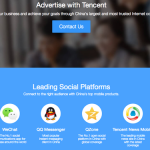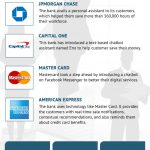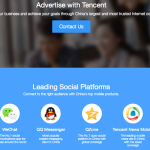Can Chatbots Replace Your Summer Interns?
Some companies offer internships that even mid-level careerists would covet. At others, interns end up doing menial tasks that no one else wants to do. But it’s also a way to evaluate inexperienced workers before taking the plunge to hire them full-time.
The challenge is that interns don’t often come in with knowledge of the company’s policies, products, and procedures and have to learn on the job. Neither do chatbots, which use machine learning to get smarter over time, but some companies have pressed chatbots into the front lines of customer service. Aspect Software, developer of cloud-based workforce optimization, recently found that 44% of customer service reps it surveyed said that if a chatbot was handling mundane support questions, human reps would be able to apply their intellect. So could a chatbot actually replace the annual cohort of summer interns?
Why Chatbots Might Be A Good Thing For Some Employees
Joe Gagnon, Aspect Software‘s chief customer strategy officer, believes they already can. He explains that Aspect has a chatbot platform called CXP that works between companies and consumers, and between companies and their employees, mostly in marketing and customer service. Aspect uses Natural Language Understanding (NLU) technology to create natural, conversational experiences. “The chatbots improve employee satisfaction and enterprise efficiency by diverting mundane and easily asked questions to the chatbot,” Gagnon says. This not only creates a faster response, but allows agents to spend more time on complex customer inquiries that require a more personal, human touch.
WorkFusion, a company that combines robotics, cognitive automation, and chatbots for enterprise businesses, takes it one step further. They believe artificial intelligence has the potential to give every worker a virtual assistant.
Adam Devine, head of marketing at WorkFusion, says that customers expect to be able to reach a service provider at any time, through any channel, without waiting for more than a few seconds, and they expect to be understood without explanation. Yet staffing a business with enough customer service agents to handle every conversation with speed, accuracy, and personalization is too expensive, Devine says. That’s where chatbots come in.
Chatbots use data from previous conversations to answer questions like checking the status of an invoice or sending historical bank statements for a mortgage application. “A business powered, in part, by chatbots will improve its capacity by up to 25% within six months,” Devine contends.
Gagnon says his company doesn’t track actual numbers, but he estimates that thousands of customers have had interactions on Aspect’s chatbot platform. “The chatbot we designed for the Radisson Blu Edwardian, a collection of 12 luxury hotels across London, is seeing 60% of all their guests inquiries being made using ‘Edward,’ the name they’ve given their virtual host,” he says. There are a total of 1,000 different questions handled by Edward since he started answering questions across the chain.
Still Not The Same As A Human
There are limitations. Gagnon admits that 14% of guest-initiated chats to Edward in the first month were a simple “hello” or those with a desire to trip up the bot such as, “Do you have a girlfriend?” “Positive impact can be achieved in the bot not reverting to a, ‘I don’t understand the query’ response and coming back with a, ‘Sorry, I’m a computer so no girlfriend for me’ [which is the actual response from Edward],” says Gagnon. Getting questions referred to a human agent is a matter of linguistic analysis [looking for cues like words used when making an argument “however,” “nevertheless,” “despite,” etc.], combined with pulling in live data on what steps the customer has taken so far.
Gagnon contends that when calls tend to be very brief, little coaching-moment interaction takes place, so it’s not a missed opportunity for basic training for new hires or interns. “Question complexity then becomes a more fertile opportunity for skill growth and career advancement,” he says. “Over half of the agents (57%) feel they have a better chance of moving up in the organization if they can prove they can handle customer questions that require more subject matter expertise,” Gagnon adds.
Then there’s the matter of leaving it to the customer. There’s Servcorp, a provider of flexible workspace, investing more than $100 million into a hybrid technology infrastructure that ensures people will talk to a human. It enables onsite (no call centers) secretaries to answer phones with personalized greetings and handle office tasks such as making copies, ordering food, making reservations, etc., for up to 300 businesses–all tasks that tend to be passed off to an intern during summer or busy months.
But Gagnon argues that most consumers want to be able to serve themselves. He says, “They feel more satisfied when they have the power to get the information that they want when they need it.”
Industry professionals argue that mundane tasks should be automated, and human workers should leverage chatbots to use their time more effectively.
Some companies offer internships that even mid-level careerists would covet. At others, interns end up doing menial tasks that no one else wants to do. But it’s also a way to evaluate inexperienced workers before taking the plunge to hire them full-time.
Fast Company , Read Full Story
(73)














